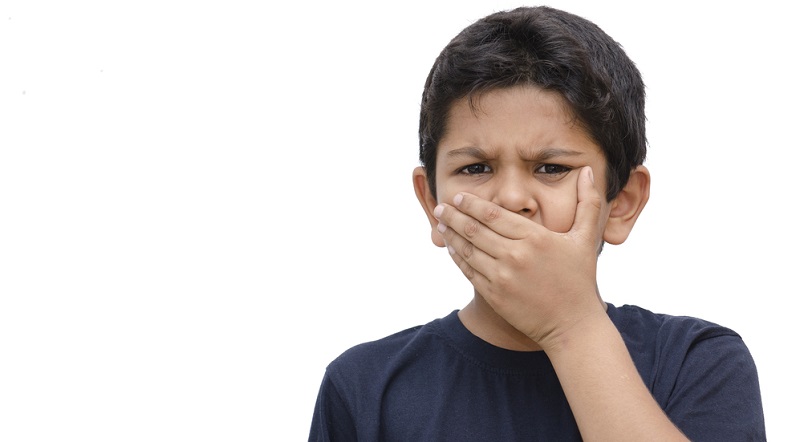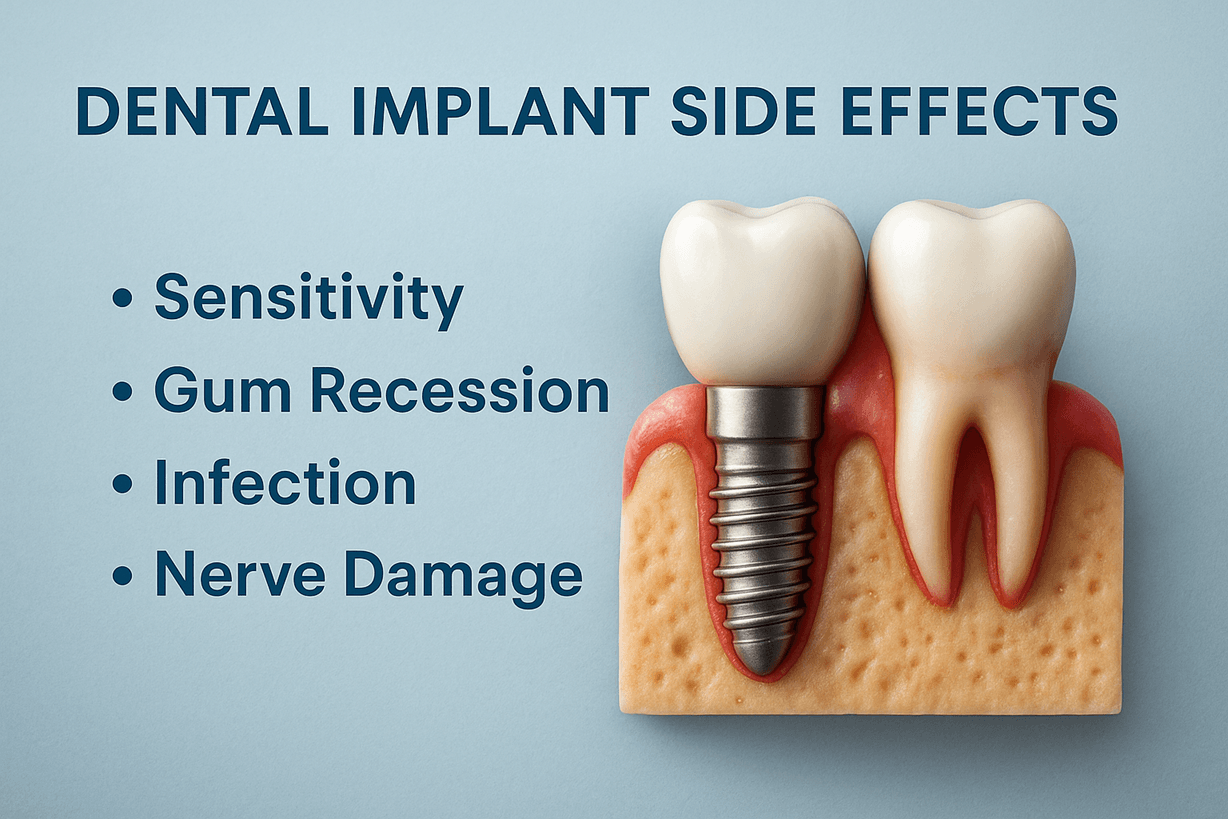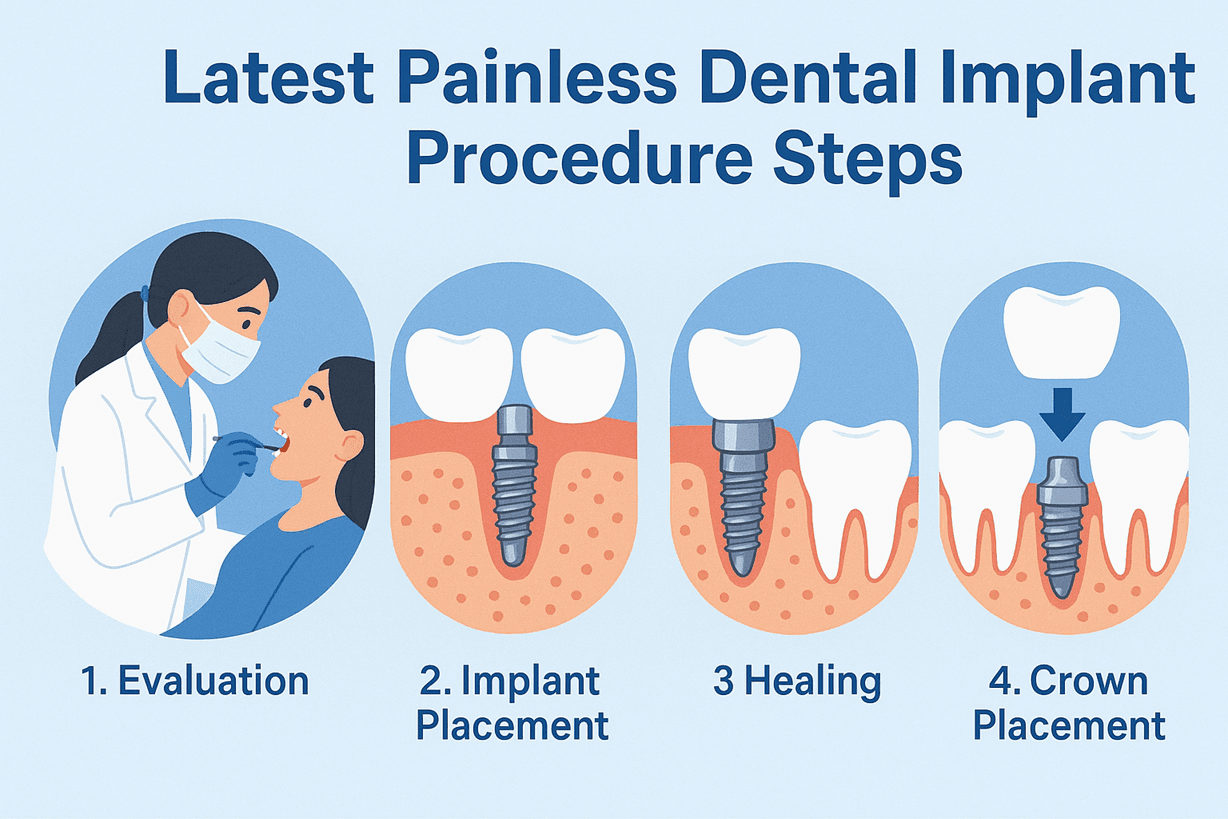Contents
- What Causes Bad Breath in Kids?
- How Common is Bad Breath in Children?
- How to Help Kids Get Rid of Bad Breath
- When Should You Visit a Paediatric Dentist If Your Child Has Bad Breath?
- How Can Parents Prevent and Treat Bad Breath in Children?
- Conclusion

You approach your child to hug them, but as you get closer, you start to smell their breath, which, let's just say, isn't very pleasant.
Although they may be cute, children can also endure halitosis or bad breath.
What Causes Bad Breath in Kids?
It is important to have an answer to: What triggers bad breath in children?
The causes of a child's halitosis might vary depending on whether it is acute or chronic, and there are many potential causes.
While many causes are unimportant and simple to treat, some are more serious and necessitate a visit to the paediatric dentist or dentist.
Nasty Foods
Strong-smelling foods are a major contributor to halitosis in children. Garlic, cheese, onions, and other pungent foods start to break down in the mouth as soon as you take your first mouthful, starting the digestion process.
This may produce an unpleasant odour. The fact that both garlic and onions contain sulphur compounds, which remain in the mouth for hours after consumption, is problematic since they are absorbed into the circulation and then released when your child exhales.
Morning Breath
Morning breath can also cause bad breath in infants and young children. It is not just a prevalent source of bad breath in teenagers and adults.
This is because everyone, regardless of age or the number of teeth they have, has odour-causing bacteria in their mouth.
Saliva production decreases when you sleep at night, preventing these bacteria from being rinsed away.
Oral Hygiene Issues
When children don't clean and floss their teeth frequently or thoroughly enough, food particles and plaque collect, and bad bacteria create an odour.
Don't forget to brush your tongue, either. On the back of the tongue, skin cells are attached by odour-producing bacteria.
Dental issues such as infections, cavities, or loose fillings
A cavity in a child's teeth indicates that the tooth is decaying, which doesn't smell good. Additionally, food is more likely to become stuck in the tooth's damaged area, aggravating children's bad breath.
Dry Mouth
Kids are very active, and all the running around might make it difficult for them to remember to drink enough water.
Lack of fluids in youngsters who participate in sports frequently results in bad breath.
Kids who don't drink enough water will have less saliva in their mouths to wipe odour-causing bacteria away.
These are some of the reasons that cause bad breath in kids. Apart from this sinus infection, large tonsils, and health conditions are also some of the reasons your kid experiences bad breath.
How Common is Bad Breath in Children?
Bad breath in children is more common than you might think. Bad breath is a relatively common problem among children, and it can occur for a variety of reasons.
According to a study published in the International Journal of Paediatric Dentistry, approximately one in five children has halitosis.
While bad breath can occur at any age, it's more prevalent in older children and adolescents.
How to Help Kids Get Rid of Bad Breath
The root cause of children's halitosis will determine whether or not breath fresheners work.
But in most cases, following these recommendations will get rid of bad breath:
Make sure children floss once every day and clean their teeth twice daily for two minutes each. You'll need to clean and floss their teeth to get rid of bad breath in infants or toddlers.
Older children can brush on their own, but if their bad breath persists despite their oral hygiene routine, you may want to watch them make sure they're using good technique. Kids should also brush their tongues to get rid of any covering.
Allowing children to skip breakfast is not a good idea. Eating and drinking will increase their salivation and lessen bad breath in the morning.
Make sure your children drink enough water each day to prevent dry mouth. After meals and snacks, remind children to rinse their mouths with water.
Giving kids sugarless gum is a great approach to treating bad breath, especially if it contains xylitol. Since toddlers will probably ingest it or make a mess, this may not be the ideal treatment for bad breath in toddlers, but it may be beneficial for school-aged children.
By increasing saliva production while chewing gum, odour-producing germs are eliminated. It is believed that xylitol lowers the likelihood of cavities by reducing bad plaque and germs.
The oral bacteria consume starches and sugars. Because of this, it's important to encourage youngsters to eat a balanced, healthy diet, restrict sugary snacks, and consume starchy foods in moderation.
Carrots and apples are examples of raw, fibrous foods that have the added benefit of being scraped.
When Should You Visit a Paediatric Dentist If Your Child Has Bad Breath?
Make an appointment with your paediatric dentist right soon if your child has poor breath and tooth pain, as this may indicate a cavity.
Seek medical or dental care as soon as you can if they have a fever as well, as they may have an infection.
It's hardly a crisis if children just experience occasional mild bouts of bad breath.
Try our advice on how to treat a child's bad breath, and pay close attention to the condition to see if it gets better.
Consult a dentist for a child's recurrent halitosis if none of our bad breath treatments is successful.
The only symptom of bacteria accumulation in your toddler's mouth can be sour breath. Bad breath can also result from acid reflux, swollen tonsils, and sinus infections.
If brushing or other therapies don't help your toddler's breath, they might have a medical condition that has to be treated by a doctor.
For toddlers, this situation is typical. There are many reasons why your kid may have bad breath.
Consistency and routine are crucial to a child's oral hygiene. It will be better for you both if you keep your child on a routine and make it entertaining.
You may need to consult your child's doctor for more advice if your toddler continues to resist you.
How Can Parents Prevent and Treat Bad Breath in Children?
The good news is that there are several steps parents can take to prevent and treat bad breath in children.
Here are some tips to keep in mind:
1. Encourage good oral hygiene habits:
Make sure your youngster brushes and flosses their teeth twice a day. You might also want to use a tongue scraper to eliminate bacteria from your tongue.
2. Make sure your child drinks plenty of water:
Water can help keep the mouth moisturised and bacteria at bay.
3. Monitor your Child's Diet:
Certain foods, such as garlic and onions, can contribute to foul breath. Encourage your child to eat a well-balanced diet and to avoid foods that have been linked to foul breath.
4. Take your Child to the Dentist Regularly:
Regular dental checks can aid in the identification and treatment of any oral health issues that may be producing bad breath.
Conclusion
Make an appointment with your paediatric dentist immediately if your child's poor breath is accompanied by dental pain, as this could indicate a cavity.
If they have a fever, they may have an infection, therefore seek medical or dental attention as soon as possible.
It is not an emergency if a child has intermittent bad breath. Try these ideas for treating foul breath in children and monitor the condition to see whether it improves.
If your child's halitosis persists and none of our bad breath cures work, consult with his or her dentist.



